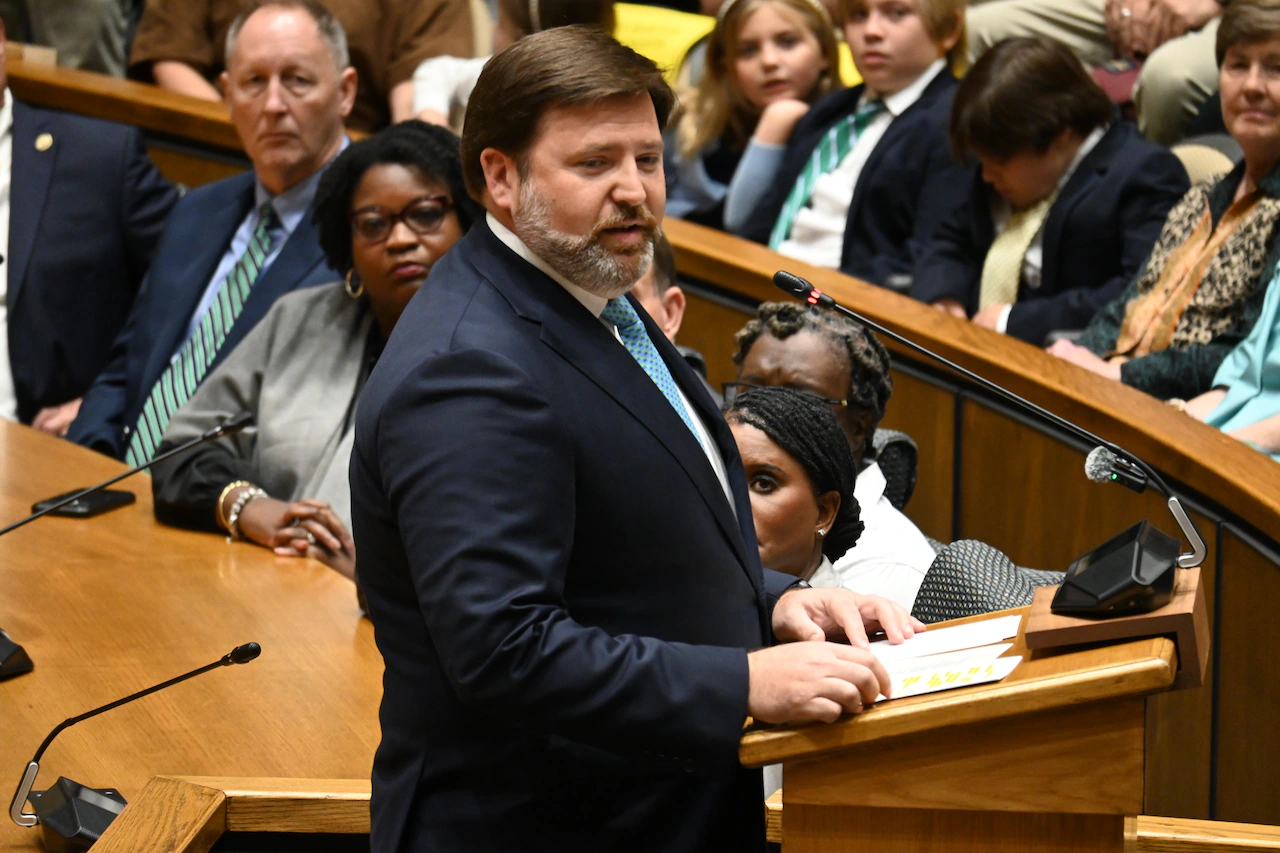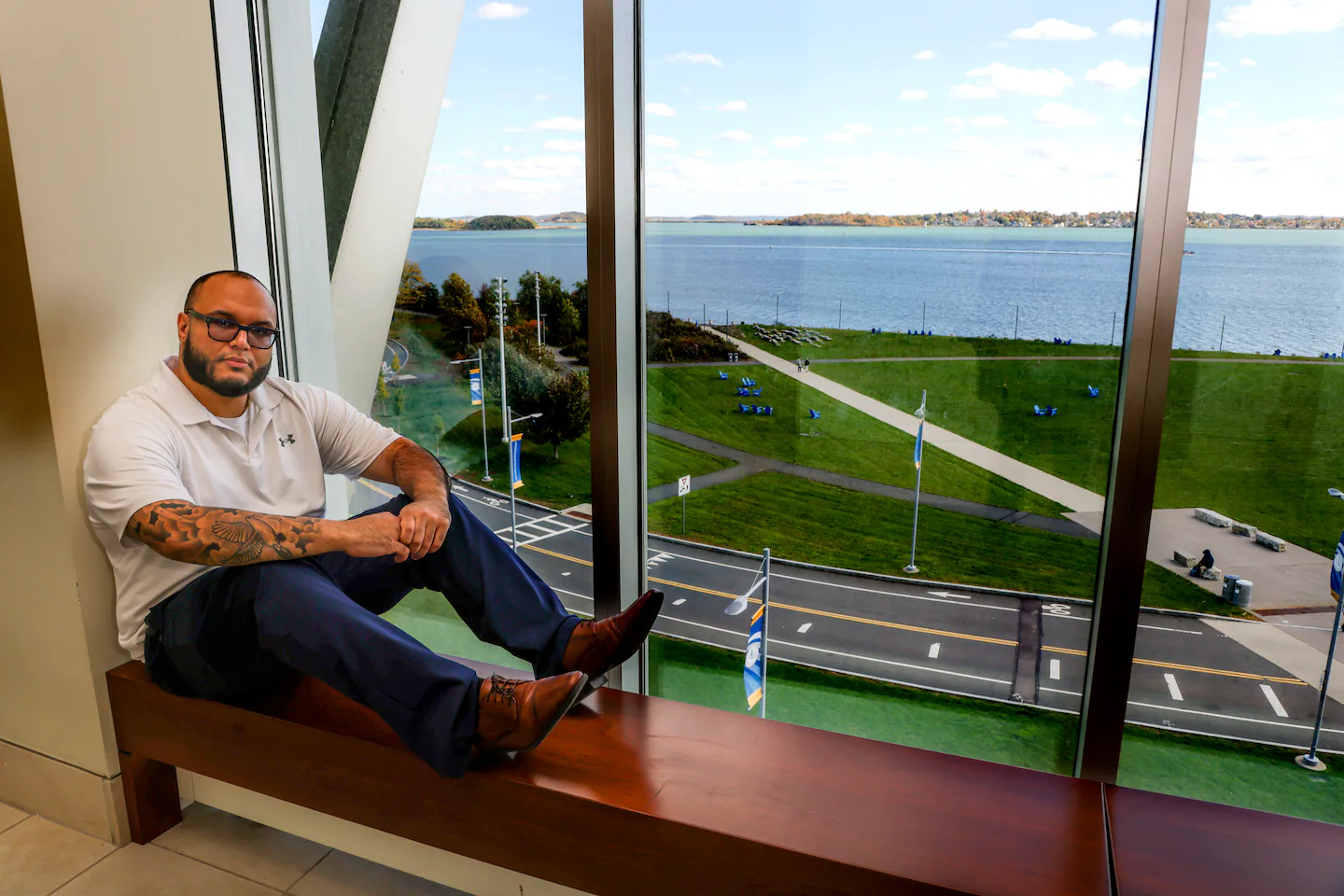Copyright AL.com

Spiro Cheriogotis is still in the honeymoon phase of his mayoral administration, having been sworn in last week and learning the ins and outs of Mobile’s government. His public battles during his first week in office have been minimal. But the new Mobile mayor has already stepped into a fight that engaged his predecessor, Mayor Sandy Stimpson: the internet sales tax. This week, Cheriogotis told reporters he is hopeful for a legislative battle over Alabama’s Simplified Sellers Use Tax, or SSUT, which imposes a flat 8 percent tax on online sales. He also signaled he may join a lawsuit, first filed in August by the City of Tuscaloosa, challenging the state’s handling of the tax. “I’m not interested in hurting the money the state is receiving,” Cheriogotis said. “But the truth is our cities will crumble under the lack of funding through SSUT if it’s not addressed.” His comments echo those of Stimpson, whose administration sparred with the Association of County Commissions of Alabama (ACCA) over the SSUT program. Stimpson called the tax system, enacted in 2016, the biggest threat to Alabama’s cities, warning that without reform, it could cripple the finances of a large city. Cheriogotis’ entry into the debate comes as Sonny Brasfield, longtime executive director of the ACCA, has rallied resistance among the state’s 67 counties. Brasfield remains wary that any efforts by Alabama’s largest cities to alter online sales taxation could throw the system into chaos and jeopardize a fast-growing revenue stream that brought in an estimated $850 million last year. “All the national experts say SSUT is a model law for simplicity that is well within the pathway created by the U.S. Supreme Court in the Wayfair case,” Brasfield said, referring to the 2018 decision that allowed states to tax remote sellers and strengthened local governments’ ability to collect online sales taxes. He has said that any changes to any portion of the SSUT could threaten the program’s existence. “Mr. Brasfield is sticking with that talking point,” Cheriogotis said. “But I think we can absolutely look at a fix that is very predictable and that we’ll know what the results will be.” Brasfield said cities should use their local audit authority to collect taxes on transactions they believe are owed to them. He said that is a better solution than “constantly beating the drum for dangerous changes to a program that provides essential revenue to the state General Fund, the state education trust fund, and every city and county in our state.” Raising concerns As mayor of Alabama’s second-largest city, Cheriogotis belongs to the Big 10 Mayors Association, which has long highlighted SSUT as a policy concern. The association includes cities with other newly elected mayors, such as Hoover, Madison and Decatur. At least one of those mayors is also raising alarms. “When I was sworn in earlier this week, I promised to hit the ground running from day one, and that includes actively reviewing several issues important to Hoover, including the Simplified Sellers Use Tax,” said Hoover Mayor Nick Derzis, the city’s former police chief. “Due to SSUT, the city is losing millions in revenue, and it’s a challenge that other larger municipalities are also facing.” Like Cheriogotis, Derzis is considering whether legal action may be necessary. “I have asked our City Attorney to review the legal action taken by Tuscaloosa so that we can fully understand its implications,” he said. “I will also discuss this matter with the City Council before making any decisions. Once I have all the information before me, we will pursue the path that is in the best interest of Hoover and its residents.” Distribution The mayors are concerned about the tax’s distribution formula, which sends less revenue back to their coffers than the conventional sales tax assessed on purchases at brick-and-mortar stores. The SSUT program is voluntary, meaning internet retailers are not required to sign up and participate. There is, however, a legal threshold for participation, which requires a company to collect and pay the tax if it exceeds $250,000 in Alabama sales during a year. Big city mayors have long argued that since the majority of online sales from businesses paying into SSUT occur within the state’s largest cities, those cities should receive a greater portion of the SSUT revenue. Under the current formula, 1.6 percent of the 8 percent tax goes to the state’s 67 counties, while 2.4 percent goes to municipalities through a prorated formula based on Census population data and divided among 463 communities. The state’s General Fund receives the remaining 4 percent. Mobile’s overall sales tax rate is 10 percent. With each sale at a store in Mobile, 4 percent goes to the state, 5 percent to the city and 1 percent to Mobile County. Tuscaloosa claims it is projected to lose $14.6 million in local tax revenue due to the difference between SSUT’s rate and the rate on conventional sales taxes. “When a city should be receiving $3 in tax revenue, but is instead getting 20 cents, it’s not something that your cities can sustain,” Cheriogotis said. “We want to find a reasonable solution that works for everybody.” Legal recourse For the new mayors and their Big 10 colleagues, the courts may be the only avenue for change. Alabama House Minority Leader Anthony Daniels, a Democrat representing Huntsville, said he doubts there is enough political will to alter SSUT before the 2026 elections. Past efforts to reform the SSUT in the Legislature have not advanced. “I don’t see there being a chance to make any changes unless it’s done through the courts,” Daniels said. Litigation is already underway with the City of Tuscaloosa, Tuscaloosa City Schools and the City of Mountain Brook filing a lawsuit against the Alabama Department of Revenue on Aug. 12, claiming the SSUT program is unconstitutional. The lawsuit argues that the program should be replaced by a system that does not shortchange the state’s cities. A hearing on the Department of Revenue’s motion to dismiss the case is scheduled for Monday in Montgomery Circuit Court. The mayors are also hopeful they can close what they call the “DoorDash loophole,” arguing that food delivery services such as DoorDash, Uber Eats and Birmingham-based Shipt pay the lower SSUT tax. Tuscaloosa and other cities claim these companies have a physical presence in the cities where they operate, including employees and equipment, and should be taxed at the conventional sales tax rate. Offering alternative Tuscaloosa Mayor Walt Maddox, who has led efforts to change SSUT’s structure, said he would support a system that allows for destination-based sourcing that “would end routine over-taxing in many rural areas” where SSUT’s 8 percent rate is higher than conventional sales taxes. For instance, in rural southwestern Washington County, the conventional sales tax rate is 5 percent. Maddox said removing SSUT would also increase revenues for cities to support public safety, infrastructure and economic activity. A majority of states tax online products using “destination-based sourcing,” which applies a sales tax rate based on where the buyer is located or where the sale is delivered. The ACCA and other critics of destination-based sourcing say the system is confusing compared to SSUT because it can assess multiple tax rates depending on the buyer’s location. “Other states have proven this works, and Alabama can as well,” he said.



